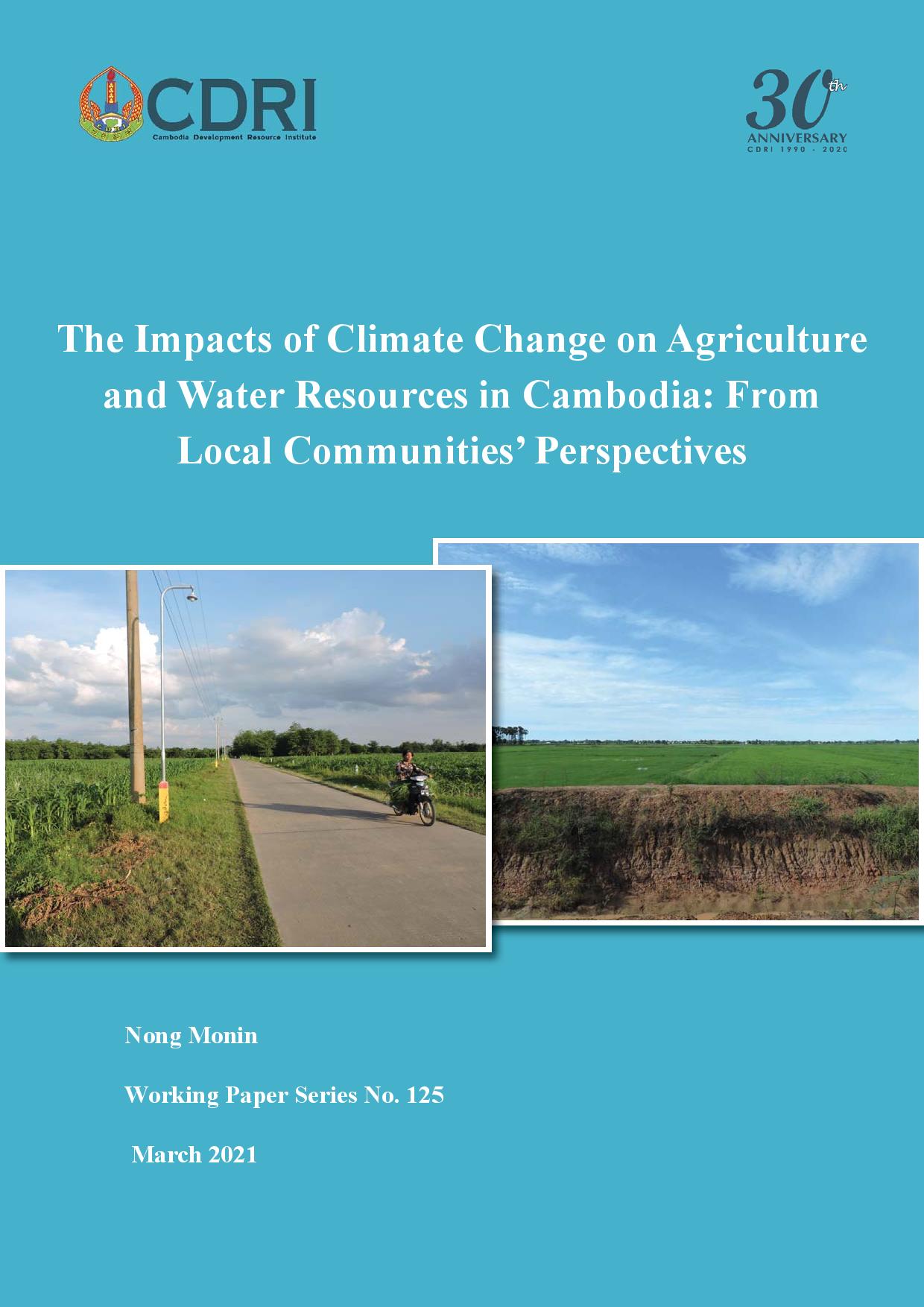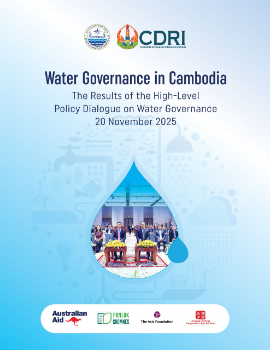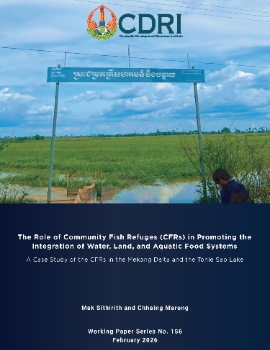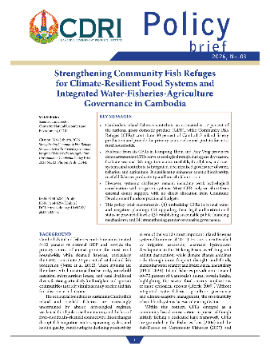
The Impacts of Climate Change on Agriculture and Water Resources in Cambodia: From Local Communities’ Perspectives
Keyword: Climate resilience, sustainable agriculture, rural vulnerability, adaptive capacity, food security
Abstract/Summary
This study investigates the impacts of climate change on agriculture and water resources in Cambodia, focusing on local communities across four agro-ecological zones. Using a mixed-methods approach—including surveys, focus group discussions, and vulnerability assessments—the research identifies site-specific climate hazards such as droughts, floods, and windstorms, and evaluates community adaptive capacities. Findings reveal that agriculture is highly vulnerable to drought in all regions, while water resources face medium vulnerability. Adaptive capacity across communities is generally low to medium, hindered by poverty, poor infrastructure, limited access to climate information, and inadequate institutional support. Communities rely on traditional coping mechanisms, which are insufficient to address increasing climate variability. The study highlights the need for targeted, inclusive, and technically appropriate adaptation strategies. Key recommendations include improving access to financial and technical resources, ensuring equitable distribution of climate-resilient infrastructure, and fostering multi-level stakeholder engagement. Strengthening local resilience through integrated planning and capacity building is essential to mitigate climate risks and support sustainable development. The findings underscore the urgency of enhancing climate adaptation efforts in Cambodia’s rural sectors to safeguard livelihoods and promote long-term environmental and economic stability.



